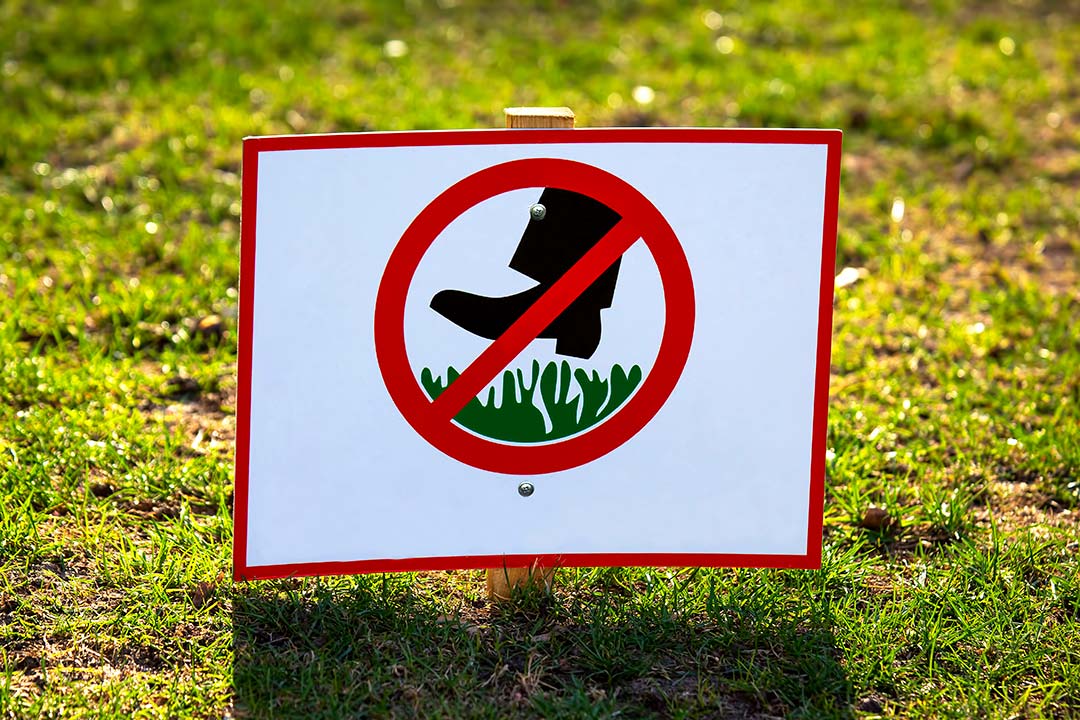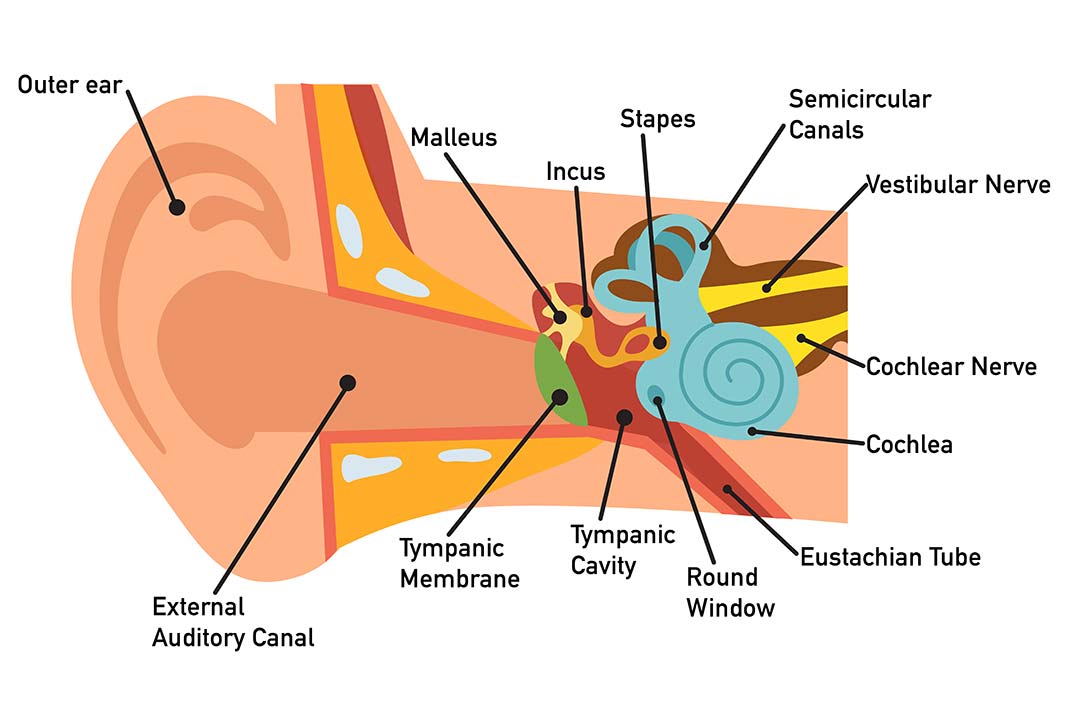My two favorite sounds are people who can’t stop laughing at a funny story, or the crack of a home run at the ballpark.
What about you?
Consider opening your next training about hearing protection by asking this exact question.

Click on Link to PLAYGROUND PROFESSIONALS or Read Below:
Years ago, I learned more about my sense of hearing, when a speaker compared our ears to grass. For workers (such as park employees, playground installers, or contractors), who may not always be wearing their hearing protection, this analogy is a great way to demonstrate why they should be more cautious.

In our ears, there are hair-like structures, called cilia, which are an important part of hearing . These cilia can be damaged by exposure to prolonged noise and extremely loud noise. Picture the insides of each ear, as big lawn, but instead of being comprised of blades of grass, the lawn is made up of these cilia.
If workers use noisy tools or machines, even just a short time span, the cilia in our ears can “bounce back”, just like grass does after a small, backyard event.
But if the noise is way too loud, or occurs over an extended period of time, the cilia in our ears may not be able to recover. Hearing can also be impacted due to damage to other parts of your ears, as explained below. Too much noise may result in permanent hearing damage, and the inside of your ears may start to resemble a destroyed lawn, after an all-night party.
It is imperative for workers, who use loud tools and machinery, or those who may be found within noisy environments, such as a carpentry shop, to always wear ear plugs or ear muffs. When used properly, these items of personal protective equipment (PPE) will protect a worker from hearing damage.
—–
From the Center for Disease Control (CDC) Website:
Hearing Loss Can Be Temporary or Permanent
Hearing loss is a decrease in your ability to hear or understand speech and sounds around you. Hearing loss can happen when any part of the ear or the nerves that carry information on sounds to your brain do not work in the usual way. In some cases, hearing loss can be temporary. However, it can become permanent when vital parts of the ear have been damaged beyond repair. Damage to any part of the ear can lead to hearing loss.
Loud noise is particularly harmful to the inner ear (cochlea). A one-time exposure to extremely loud sounds or listening to loud sounds for a long time can cause hearing loss. Loud noise can damage cells and membranes in the cochlea. Listening to loud noise for a long time can overwork hair cells in the ear, which can cause these cells to die. The hearing loss progresses as long as the exposure continues. Harmful effects might continue even after noise exposure has stopped. Damage to the inner ear or auditory neural system is generally permanent.
Damaged Hair Cells in Your Ears Can Lead to Hearing Loss
The average person is born with about 16,000 hair cells within their cochlea. These cells allow your brain to detect sounds. Up to 30% to 50% of hair cells can be damaged or destroyed before changes in your hearing can be measured by a hearing test. By the time you notice hearing loss, many hair cells have been destroyed and cannot be repaired.
After leaving a very loud event, such as a concert or football game, you may notice that you don’t hear as well as before. You might not hear whispers, sounds might seem muffled, or you may hear ringing in your ears. Normal hearing usually returns within a few hours to a few days. This is because the hair cells, similar to blades of grass, will bend more if the sound is louder. But they will become straight again after a recovery period.
However, if loud noise damages too many of the hair cells, some of them will die. Repeated exposures to loud noises will over time destroy many hair cells. This can gradually reduce your ability to understand speech in noisy places. Eventually, if hearing loss continues, it can become hard to understand speech even in quieter places.
Noise Can Also Damage Nerves in Your Ears
In addition to damaging hair cells, noise can also damage the auditory nerve that carries information about sounds to your brain. Early damage may not show up on your hearing test. It can create a ‘hidden hearing loss’ that may make it difficult for you to understand speech in noisy places. The effect of loud noise over time affects how well you might hear later in life. It also affects how quickly you might develop hearing problems, even after exposure has stopped.
How Do We Hear?

We hear sound because of vibrations (sound waves) that reach our ears. We recognize those vibrations as speech, music, or other sounds.
Outer Ear
The outer ear—the part of the ear you see—funnels sound waves into the ear canal. The sound waves travel through the ear canal to reach the eardrum.
Middle Ear
The eardrum vibrates from the incoming sound waves and sends these vibrations to three tiny bones in the middle ear. These bones amplify, or increase, the sound vibrations and send them to the inner ear.
Inner Ear
The inner ear contains a snail-shaped structure filled with fluid called the cochlea. Sound vibrations create waves in the cochlear fluids. As the waves peak, they cause tiny hair cells to bend, which converts the vibrations into electrical signals. These tiny hair cells are called stereocilia (types of receptors that can detect sound).
Auditory Nerve
The auditory nerve carries the electrical signals from the inner ear to the brain. The brain interprets the signals as sound that you recognize and understand.
—–
Keep An Eye Out for Ear Damaging Sounds
Here are some sources of loud noise that you may be exposed to. If you are repeatedly exposed to them over time, they can cause hearing loss.
Tools and More
- Power tools
- Gas-powered lawn mowers and leaf blowers
- Sirens
- Firearms
- Firecrackers
Conclusion:
Share this article with anyone who needs a reminder to wear hearing protection, such as those who operate chainsaws, drive tractors, or work on boilers. Also, use this helpful analogy, when delivering safety training to employees.
By training any workers, who may be in a noisy environment, about the importance of hearing protection, and how to use it properly, we will all continue to hear great music, funny jokes, as well as additional safety information.
What an easy to read and educational article on hearing and the potential hearing loss from being exposed to loud noises. Well done Joann!
Glad you enjoyed it.